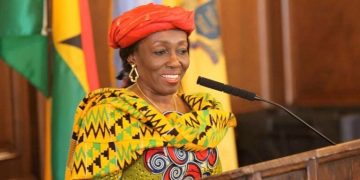Africa Loses $5bn Annually to Forex Transactions, Says AfCFTA Secretariat
The African Continental Free Trade Area (AfCFTA) Secretariat has disclosed that the continent loses approximately $5 billion every year through foreign exchange transactions — a situation that continues to elevate the cost of doing business and impede Africa’s economic competitiveness.
According to the Secretariat, the persistent losses constitute a major structural challenge to Africa’s growth ambitions, underscoring the need to strengthen intra-African payment systems and deepen financial integration.
Speaking at the 2nd International Conference on Environment, Social, Governance (ESG) and Sustainable Development of Africa (ICESDA 2025) in Accra, Director for Coordination and Programmes at AfCFTA, Dr. Tsotetsi Makong, revealed that similar inefficiencies have been identified in digital transactions, with the Secretariat developing measures to address them.
Dr. Makong emphasised the need for African countries to consolidate resources and create a unified market to attract large-scale investments, noting that fragmented markets have limited the continent’s capacity to compete globally.
“Remember, we’ve been fragmented, and these artificial borders have been created. Nobody is going to invest in Ghana because Ghana is too small to attract huge investment. But if you put Nigeria together, Togo together, and you create one single market, which is what we’re doing in the AfCFTA, you increase the possibility for investments to be made in the continent,” he stated.
He cautioned that no single African nation can achieve sustainable development in isolation, irrespective of its national development vision.
“For the investments that we require, we need to make sure that we pull together as countries,” Dr. Makong added.
The AfCFTA, currently implemented across 47 countries, aims to create a single market for goods and services, facilitate free movement of businesspersons and investments, and enhance Africa’s collective bargaining power in the global economy.








